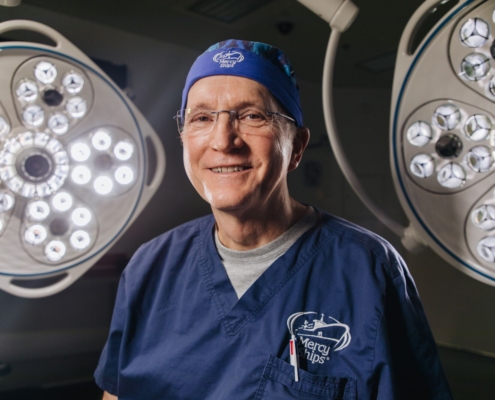World Health Day: Partnering with Africa for a Healthier Future
For a child in a low-income country, an unmet medical need creates a ripple effect.
Often, it means that child is unable to go to school. Without an education, the trajectory of their whole life will change.
“That child might have amazing potential,” said Dr. Miriam John, Mercy Ships International Chief Medical Officer. “But if they never go to school, they’ll never be given the skills to be able to achieve that potential.”
According to UNICEF and the African Union, Africa is home to more than 40% of the out-of-school children in the world. Among primary school-aged children, this number rises to 58%. West Africa is home to more of those children than any other region of the continent.
Great progress has been made in reducing these percentages since 2000. But because of population growth, the numbers are still daunting: 105 million out-of-school children in 2019.
“If you have a community of 100 people and you’ve got 10 children, and one of them can’t go to school – that could be the one person that set up a farm and created jobs for the others,” said Dr. John. “The more individuals you have within a community that struggle to access education because of their health needs, that community is going to struggle to progress.”
It is needs like these that drive Dr. John, Mercy Ships volunteers, and the
organization’s African partners. They know that solutions cannot be shipped in from across the sea. That’s why Mercy Ships works in tandem with local community leaders, surgeons, and governments on a three-part plan to strengthen not only the current generation, but also the generation to come.
A Three-Part Model
The first thing a Mercy Ships team does is offer direct care. Volunteers serving on board one of the Mercy Ships fully outfitted floating hospitals address patients’ immediate needs by performing free surgeries.
“A lot of these patients have struggled … and have waited years in order to be able to get access to safe, affordable surgical care,” said Dr. John. “The gratitude that these patients come with is just so wonderful. They’ve waited so long.”
But to make a real lasting change, education and empowerment are needed. This is where the Medical Capacity Building program comes in. Mercy Ships partners with existing healthcare systems in each nation they serve to provide training for surgeons, nurses, and other medical staff.
“It varies a lot between countries and what they need,” Dr. John said. “Some countries might have more anesthetic training than others. Others might have more surgical training or better nursing training. So for us, we have to sensitively come in and try and identify, ‘What are your needs and what are the needs that we as Mercy Ships are skilled to help you with?’”
This training can provide exponential growth, extending far beyond that first round of students.

“A big thing about capacity building is training individual workers in different skills, but also training them to train others,” said Dr. John. “So that when we leave, they can continue scaling up that work.”
The Africa MercyⓇ and her crew have been offering direct care and training for years. But now with the completion of the newer and larger Global MercyⓇ, the Mercy Ships capacity for both surgery and mentoring will more than double.
In addition to the larger space, the technology on the new ship will broaden the possibilities. For instance, the lights in the operating rooms have built-in cameras. Previously, one local surgeon could observe a surgery and learn from the lead surgeon. Now, as many as 12 people can watch from another room, accompanied by a doctor to answer questions and talk them through the procedure.
“That means we can … concentrate more on a different kind of model,” Dr. John said. “We’re still doing surgeries, but a different kind of mentorship.”
Change from the Inside
Finally, in addition to direct care and training, Mercy Ships comes alongside local governments to support them in improving their healthcare system as a whole.
“As an organization, we have influence, but it isn’t our responsibility to fix that system,” she said. “But we do have an amazing opportunity to influence, empowering others to be able to change their system from the inside.”

‘Let Us Look into the Future’
This year, government leaders from across the continent will gather in Senegal for the International Symposium on Strengthening Surgical, Obstetric, and Anesthetic Care Systems in Africa by 2030. This important milestone will take place in conjunction with the Mercy Ships Africa Celebration, commemorating 30 years of partnership between the organization and its African host nations.
“Celebration is not about dancing,” said Dr. Pierre M’Pelé, the director of the Mercy Ships Africa Bureau. “It is not a festival. But celebration in a different way is, ‘Let us look into the future and make the future better than the past.’”
The celebration will also serve to commemorate another historic event: The commissioning of the Global Mercy this summer, and her first visit to Africa as a training vessel committed to the empowerment of local surgeons.
These events all share one focus. They provide opportunities for healthcare leaders from across the continent to collaborate on establishing a clear roadmap to safer surgery in Africa.
“Good health is a sign of a strong, solid country,” Dr. John said. “It allows you to progress with your education, allows you to progress with your economy, if you have healthy populations.”
This World Health Day, consider supporting the work of Mercy Ships with a donation, or learn more about how you can join the crew and partner with African nations to work toward a healthier future.








